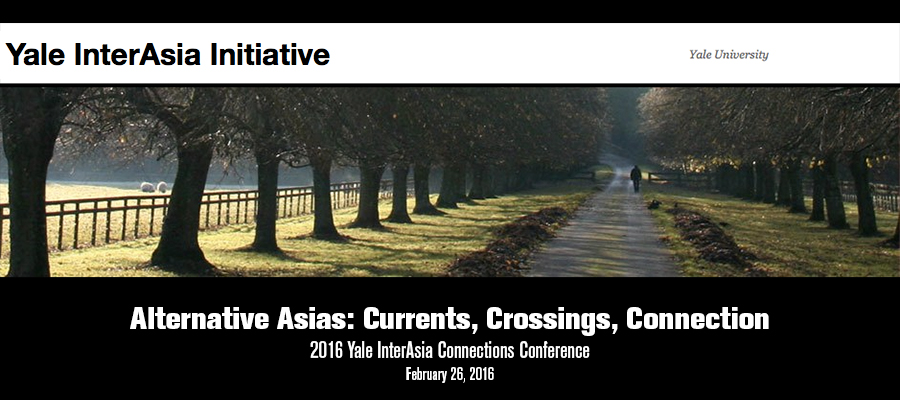2016 Yale InterAsia Connections Conference “Alternative Asias: Currents, Crossings, Connection,” Yale University, February 26, 2016
The Yale InterAsia Initiative cordially invites graduate students, postdocs, and junior faculty from all disciplines and institutions to submit abstracts for the 2016 Yale InterAsia Connections Conference “Alternative Asias: Currents, Crossings, Connections,” to be held at Yale University, New Haven, CT, on February 26, 2016. Transcending traditional geographical and disciplinary boundaries, this conference will showcase recent and ongoing projects that explore transregional and transnational connections, and re-conceptualize Asia from the premodern period to contemporary times as an interlinked set of formations stretching from East and Southeast Asia, to South Asia, Inner Asia, the Middle East, and Africa, the North and South Americas, and the Pacific Islands with an Asian connection. Bringing together scholars with diverse geographical and disciplinary specialties, the conference, the first of its kind at Yale, seeks to present opportunities for future collaboration and to foster conversation among early-career scholars on remapping and re-imagining Asia in an age of ever-increasing global connections and shifting regional imaginaries.
We conceptualize “InterAsia” as an analytic that focuses on the ways that flows of people, objects, practices, and ideologies across time and space produce our objects of analysis in an imagined “Asia.” We aim to think in terms of “Asia as process,” which includes analyses of the connections as well as tensions and exclusions involved in the processes of creating “Asia” from the ground up. Our task is to examine the situated techniques and strategies by which Asian interconnections are made imaginable and serviceable for particular ends, and what its exclusions and political effects might be.
Key questions that the conference may explore include, but are not limited to:
- How is “Asia” constructed and deployed by particular actors at particular times in history, and by what methods can we attend to the inclusions and exclusions happening at various scales in this process?
- How has the flow of commodities, peoples, and ideas influenced the relationship among different parts of Asia as well as the place of Asia in the world? What power dynamics, truth-claims, contingencies, and inconsistencies constitute these connections?
- What is the role of frontiers, borders and other internal divides in Inter-Asian connections?
- How has Asia been interconnected in different periods from ancient to contemporary times, and how might this challenge modern land- or continent-based regional divisions?
- How can micro- and macro-level perspectives and methodologies contribute to Inter-Asian studies?
All papers relating to “Asia,” broadly conceived, are welcome.
